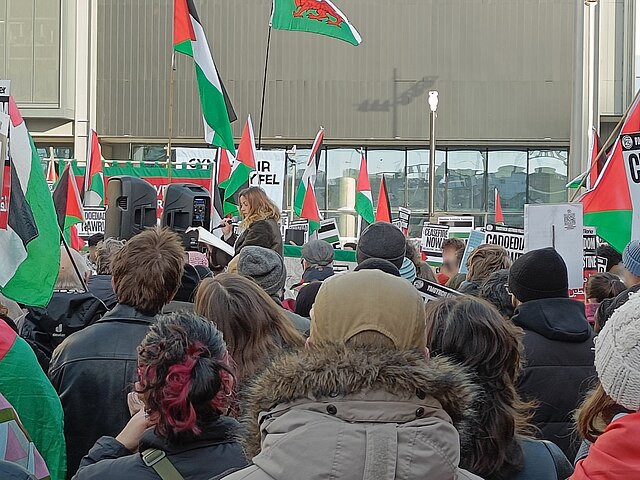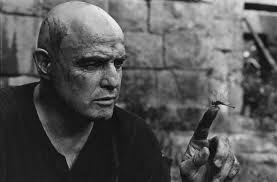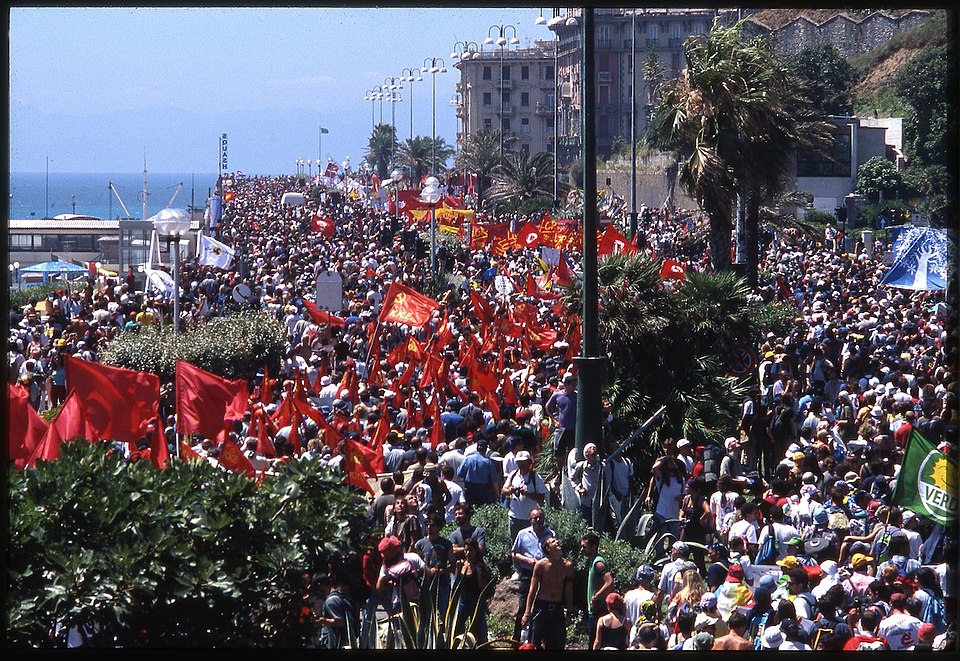Charlotte Church learned not to trust the media at a very young age. She was originally feted for singing ”Pie Jesu” from Andrew Lloyd Webber’s requiem in 1997, at the age of 11. The next year, she released ”Voice of an Angel”, becoming the youngest artist in the British classical albums chart. Reviews of the album called Church “talented, young, and adorable”. Her fans apparently included Prince Charles and Pope John Paul II.
At first, Church was an ”unpolitical” member of the Arts establishment. She performed for Bill Clinton and George Bush and sang at Rupert Murdoch’s Wedding to Wendy Deng. She claims that Murdoch offered her £100,000 to sing, but she waived the fee in return for good publicity – a deal which Murdoch later reneged on.
As she got older, coverage of Church became more ominous. An article in the Guardian refers obliquely to “fascination with her private life – from the online countdown to her 16th birthday, to tabloid coverage of her teenage smoking and drinking, not to mention the swearing, the weight gain, and the unsuitable boyfriends who kissed and told.”
What was meant by “countdown to her 16th birthday”? When Church was still 15, an Internet site was set up headed “Charlotte Church Countdown”, giving the number of days until “Charlotte Church is legal”. Although it was wrongly assumed that this site was set up by the Sun, the occurence was still gleefully reported by the tabloid press. Church later responded: “it was bizarre, all these grown men looking on a website: ‘How many hours to go?’ Disgusting!”
That was not all. On Radio 1, DJ Chris Moyles, then 28, said on air that he wanted to “lead her through the forest of sexuality now she had reached 16”. A few months later, she was awarded the Rear of the Year award. She later admitted that accepting the award was “a ridiculous choice, a stupid thing to do but, you know, there was a whole host of people that I was working with who should have said, ‘Woah. woah. woah. You shouldn’t do this. This is bad, you’re 16.’”
As Church grew older, the press became obsessed with her drinking habits, her swearing, and her celebrity engagement to rugby player Gavin Henson. She became “the girl portrayed as a chav, a binge drinker, a fallen angel, a symbol of everything wrong with modern Britain”. Her initial response was to request privacy and hide away from media attention.
At the time, Church played along with the media; in later interviews she was more reflective, saying: “here was a way in which young women were presented, and particularly young working-class women. And because I didn’t have any life experience, and because I hadn’t stepped into my female power in any way, shape or form, I allowed that narrative to be told. I even played along with it, because it’s what people wanted.”
Charlotte becomes an activist
When the Leveson inquiry exposed intrusive behaviour from the British press, especially Murdoch’s News of the World, Church was revealed to be one of the victims of phone hacking. After listening in on her calls, the tabloids published stories about her mother’s attempted suicide and her father’s affair.
At the enquiry, “she described how photographers had installed secret cameras outside her home to track her movements, followed her car, and tried to take upskirt shots. Her first pregnancy was revealed in the Sun before she had even told her parents; her mother’s mental health crisis and suicide attempt were exposed by the News of the World.”
After Leveson, Church became political, saying “I started to understand how corrupt shit was. I suppose the more you see this kind of stuff, the less you can undo seeing it. Eighty per cent of the papers are owned by five billionaires and it’s happening all over the world. That concentration of power and money in too few hands has never been very good historically … After seeing that, I started getting more and more annoyed at the Tory government and when they got in again I was totally devastated.”
In a later interview she explains her turn to activism post-Leveson: “I hadn’t been interested in politics before because I thought it was all bullshit and they were all full of bullshit. And then when I started to understand how corrupt things were in the press, in government … There was so much injustice that I was like, ‘No, I’m going to get involved and try and understand.’” She voted for the first time in 2015.
After the Tories won that election, Church started attending demonstrations. In 2015, Wales Online reported that she was “last seen wielding a placard which read ‘I’m mad as hell and I’m not going to take it anymore’ as she marched through the streets of of her home city of Cardiff on the weekend to protest austerity measures following the Conservatives’ recent win at the General election.”
Following that demonstration, she started to get active. As she recounted: “I got involved with the People’s Assembly and I met amazing people, just out on the streets, telling me stories about what had happened when their benefits were cut or they got chucked out of their house. And then you’re in, you know what I mean? You’re absolutely in.”
In the same year, Church appeared on stage at Glastonbury with Pussy Riot, and joined a Greenpeace protest against drilling in the Arctic, singing outside Shell’s London offices. When detractors (not for the last time), accused her of being a “silly girl”, she replied: “What I think perplexes me the most when people get wrathful at celebrities campaigning is that they don’t react that way when a celebrity is being paid to endorse a product.”
She went on: “the only relevant fact here is that not just Shell, but Vladimir Putin, Barack Obama, Norway’s Statoil and, I don’t know, let’s just call them all Psychopaths Anonymous, have so little respect for scientific research that they are going to bore into the Earth’s achilles heel to steal and burn the very stuff that will weaken this extraordinary wilderness further … And we can stop it, before it’s too late.”
When Jeremy Corbyn became Labour leader, Church was a great supporter. In 2016, the Guardian reported that she was “spotted urging the audience at a Jeremy Corbyn rally to “get these fucking Tories out.” In the same year, she played a fundraiser for Corbyn’s campaign to become prime minister on a radical reformist platform.
She spoke up for Corbyn on Radio 4’s Today programme, saying: “You look at the way that Jeremy Corbyn has just been completely slated, so unfairly, a lot of the time, then I think there is definitely an unbalance there. The majority of stuff I see about Jeremy Corbyn I don’t think reflects the popular idea of who he is and what the people think. It comes across as a little biased.”
Speaking Up for Palestine
All this is just a prelude to Church’s latest “scandal”. On March 9th this year. she attended a demonstration for Palestine, singling “There are no leaders who dare to say ‘Every life is precious’, so it will have to be us.” She concluded her speech with a quote by Carl Jung: “The spirit of evil is a negation of the life force by fear. Only boldness can deliver us from fear. And if the risk isn’t taken, the meaning of life is violated. This is how much this means. Free, free Palestine!”
Church also had the temerity to take part in a Sing for Palestine event organised by the Middle East Childrens’ Alliance to raise money for a new ambulance for the Al Awda hospital. At the event, she led a 100 strong choir singing “From the River to the Sea”.
The usual Greek chorus of self-appointed experts had a predictable reaction. The right-wing Campaign Against Antisemitism accused Church of “using the voice for which she is so well known to fan the flames of hatred.” The Daily Mail reported Andrew Percy MP calling her to “hang her head in shame”. Police were called to check on Church’s family after they were threatened by “some pretty scary people”.
On the BBC, reporter Nick Robinson asked notorious racist Nigel Farage whether Church should be arrested for singing “From the river to the sea…” Farage’s response was to call her a “naive idiot”, who should be “given a severe warning”, and “made to see the error of her ways”. All this on Britain’s public broadcaster presented as unbiased news.
Church wrote a powerful reply on her blog, entitled From a mother on Mother’s Day. In it, she said: “I have to take the opportunity to speak out because since the start of the genocide very little of the campaign that calls for an end to Israeli aggression in Palestine has been covered by the press, except when it is being denounced as ‘hateful’ or ‘islamist’ by some of the most notorious racists in the western world.”
After addressing the legitimacy of the chant “From the river to the sea” and the apartheid system in modern Israel, Church eloquently denounced Robinson, Farage and “self-proclaimed ‘public intellectual’” David Baddiel for their “’shush, silly girl’ strategy”, used to silence any opposition. In passing, she pointed out Baddiel’s “checkered hisory with racism”, which hardly gives him a safe place on the moral high ground.
She concluded by calling on “all mothers, all grandmothers, in fact all those who have mothers, to hold in our hearts all those who had mothers in Gaza and now do not, all those mothers whose children have been murdered, and the families whose every member has been brutalised and wiped out. Let us listen to our bones, our great-great-grandmothers’ instincts that live within us, and reject the fallacy of western patriarchal moral authority.”
Why is any of this important?
A main part of Church’s story is about class and gender. Although she earned a lot of money very young, she remains shaped by the working class values she gained growing up in the Welsh city of Cardiff. She has also learned how to healthily respond to a lifetime of patronising men talking down to her (she doesn’t need me to explain how well she has reacted).
When asked why more public figures aren’t speaking out on Palestine, she answered: “clearly there is risk in it, the risk of being labelled an antisemite. People think they have too much to lose.” She went on: “I can do nothing but be a part of this movement … this is not just for the people of Palestine who are currently experiencing the worst thing I’ve ever lived through on planet Earth … But it is striking at the very heart of all of our freedoms and our ability to call for something better.”
And yet, at a time when so few artists and MPs are putting their heads above the parapet to speak out about Palestine, Church’s steadfast intervention is exemplary. Her erudition busts the myths that working class people should ”just shut up and listen” to our betters. She speaks for all of us.




